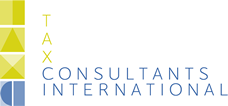Global Mobility Services International labor and cross border assignments Tax compliance
The foreign income exemption under tax treaties
For certain categories of income, a Dutch tax treaty will not provide for a tax credit, but a full exemption of the foreign sourced income applies. Most Dutch tax treaties do not require that the foreign sourced income is actually subject to tax in the source state if an exemption method applies.
The exemption method applies to those categories of income as defined by the tax treaty and only if certain conditions are met. As a general rule, active income such as income from business activities conducted in the other state and the income from employment exercised in the other state qualify for the exemption method as the method to avoid double taxation.
The tax treaty provides for clear criteria that must be met before this income may be taxed in the source state. Only if these criteria are met, the foreign sourced income can qualify for an income exemption in the Netherlands.
The exemption of foreign income does not affect the taxable basis for the levy of Dutch income tax, but the exemption method is construed as a reduction of the Dutch income tax calculated over the worldwide income.
The amount of the tax exemption can generally be calculated as the Dutch income tax allocable to the foreign source income which is eligible for the exemption on the basis of applicable Dutch tax treaties (with some technical adjustments).
A technical formula is provided to calculate the exact amount of the exemption.
The amount of the exemption can be deducted from the income tax due over the (grossed up) worldwide income of the taxpayer and must be claimed and reported in the annual Dutch personal income tax return.


.png)



